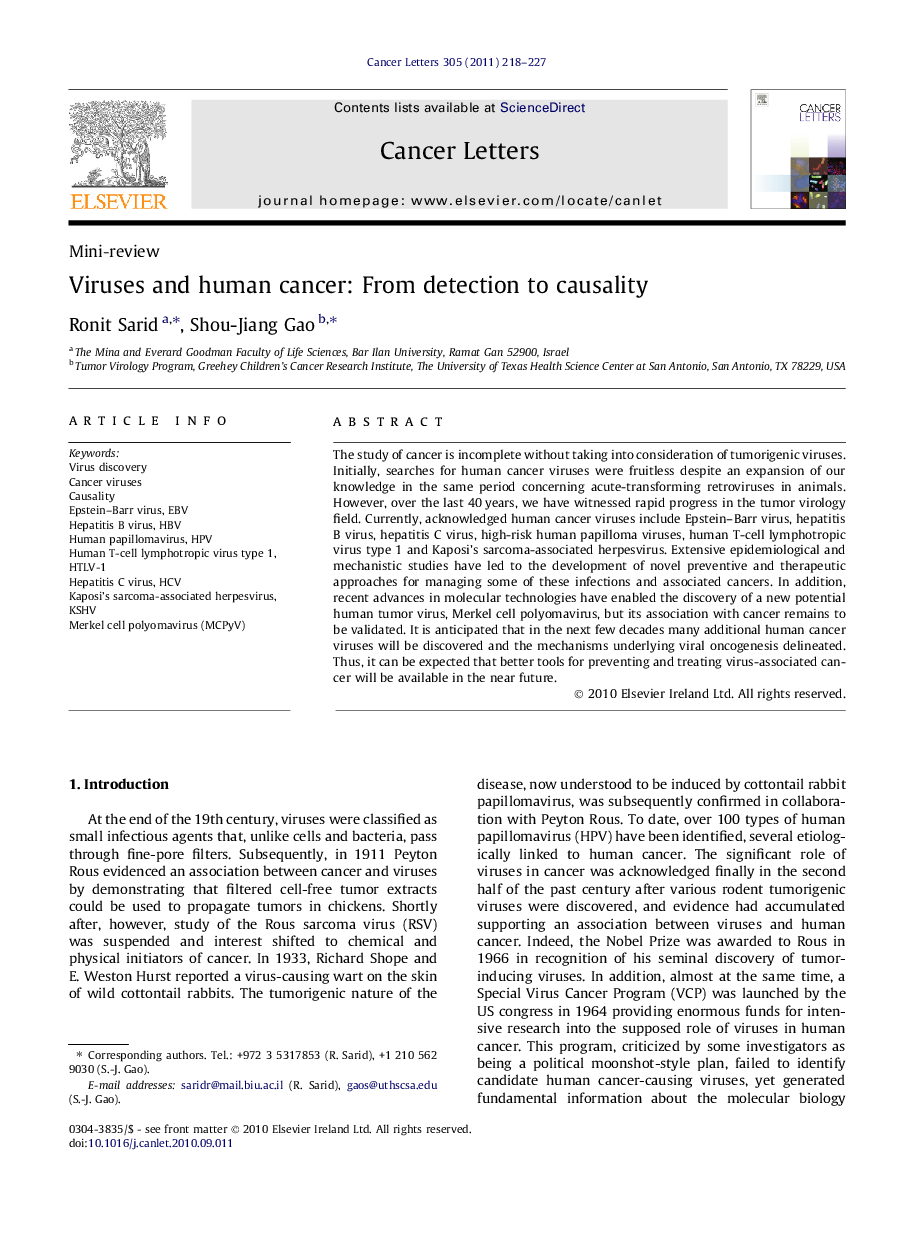| Article ID | Journal | Published Year | Pages | File Type |
|---|---|---|---|---|
| 10900107 | Cancer Letters | 2011 | 10 Pages |
Abstract
The study of cancer is incomplete without taking into consideration of tumorigenic viruses. Initially, searches for human cancer viruses were fruitless despite an expansion of our knowledge in the same period concerning acute-transforming retroviruses in animals. However, over the last 40Â years, we have witnessed rapid progress in the tumor virology field. Currently, acknowledged human cancer viruses include Epstein-Barr virus, hepatitis B virus, hepatitis C virus, high-risk human papilloma viruses, human T-cell lymphotropic virus type 1 and Kaposi's sarcoma-associated herpesvirus. Extensive epidemiological and mechanistic studies have led to the development of novel preventive and therapeutic approaches for managing some of these infections and associated cancers. In addition, recent advances in molecular technologies have enabled the discovery of a new potential human tumor virus, Merkel cell polyomavirus, but its association with cancer remains to be validated. It is anticipated that in the next few decades many additional human cancer viruses will be discovered and the mechanisms underlying viral oncogenesis delineated. Thus, it can be expected that better tools for preventing and treating virus-associated cancer will be available in the near future.
Related Topics
Life Sciences
Biochemistry, Genetics and Molecular Biology
Cancer Research
Authors
Ronit Sarid, Shou-Jiang Gao,
